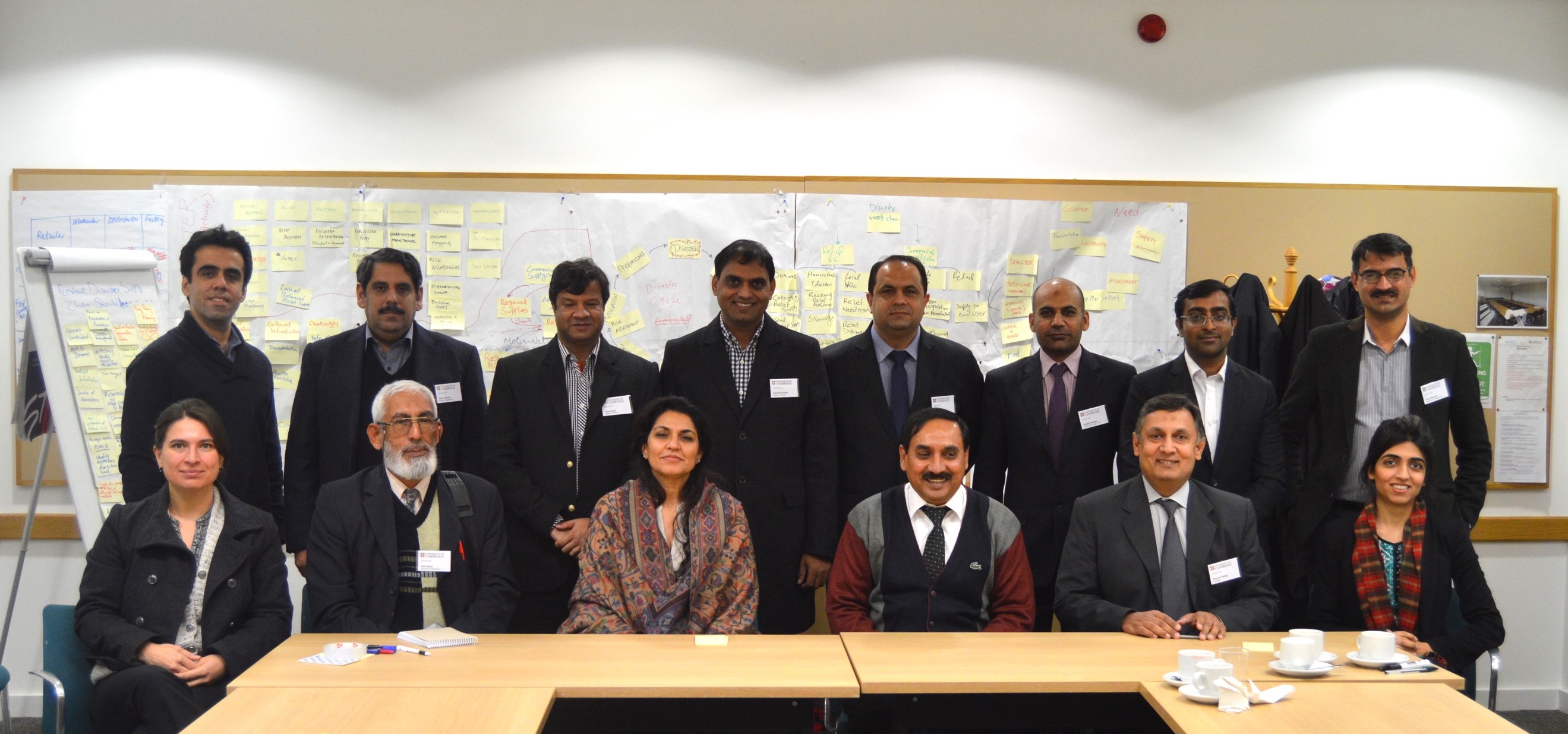Design for Disaster Relief and Resilience

The vision of the project was to improve disaster supply chain operations by enabling resilience. Natural Disasters have affected 377 million people with worldwide economic damage of $92.38 billion in 2016 – both numbers are increasing over years (CRED, 2016). Whenever there is an earthquake, flood, heat wave or heavy snow, disaster management (response-recovery-mitigation-preparation) organisations provide medicine, food, water and shelter. However, a particular challenge is that the disaster management operations (DMOs) are disrupted due to disconnectedness between commercially established and ad hoc disaster management supply networks requiring future-proof DMOs aimed at saving lives, rebuilding infrastructure and society.
As part of this project, a novel DROPS framework of considering resilience, supply network integration and big data analytics in DMOs was proposed (Masood et al 2017). This is based upon a 5-day International Workshop organised as part of this project at Cambridge during 28 Nov– 2 Dec, 2016. The workshop gathered senior practitioners, government officials and academics involved in disaster preparedness, mitigation and relief with expertise in aspects of supply chain operations, resilience and big data analytics. During the workshop, current practices, issues, challenges and key factors related to DROPS were explored. Earthquakes, floods, tsunamis and disease related disasters were discussed. Case studies and lessons learnt related to the project aims were presented on disasters and supply chain operations in Pakistan, Nepal, Bangladesh, Sri Lanka, India, New Zealand and USA.
People
Project PI: Prof. Duncan McFarlane
The project was led by Dr Tariq Masood and collaborated with Dr Emily So in Department of Architecture.
Researcher: Dr Tariq Masood
Project partners
Teradata, Telenor, Resurgence, IMC Worldwide, Pakistan Railways, National Disaster Management Authority (Pakistan), Economic Affairs Division (Pakistan), University of Engineering & Technology (Lahore & Taxila), National University of Sciences & Technology (Rawalpindi), Global Assessment Technologies, Bangladesh Red Crescent Society, University of Peshawar, Transways Logistics Solutions, Lahore University of Management Sciences, Texas A&M University









